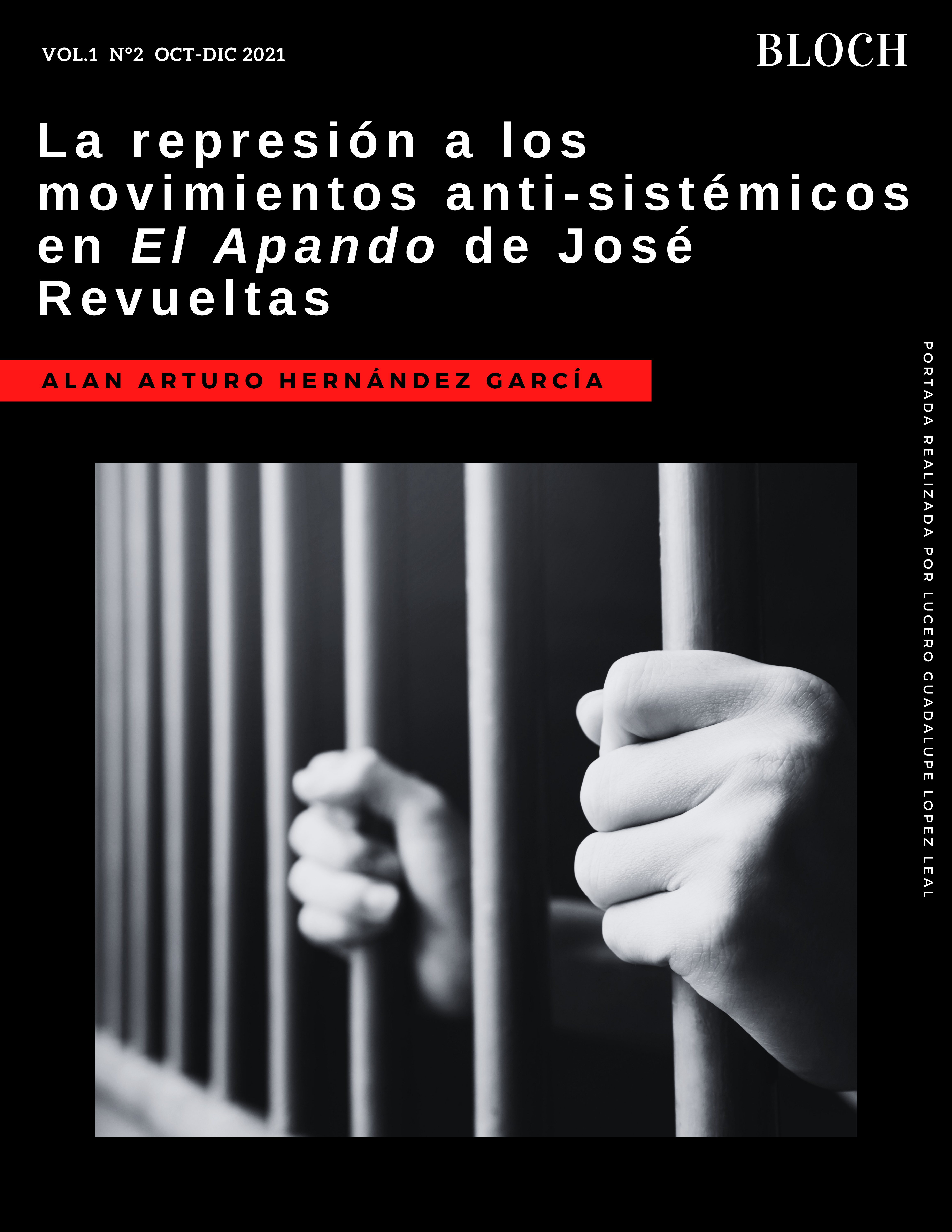
Published 2021-10-02
Keywords
- Jose Revueltas,
- History,
- Literature,
- Political Repression,
- 1968
How to Cite
Copyright (c) 2021 Alan Arturo Hernández García

This work is licensed under a Creative Commons Attribution 4.0 International License.
Abstract
Much has already been written about the student movement of 1968 and its impact on Mexican culture in the following years, as the subject has been the result of countless political and historical controversies over the course of the decades. In this sense, the short novel El Apando (1969) by José Revueltas is placed as part of the testimonial literature of the time, being a metaphor of the oppression to which those who were uncomfortable with the Mexican political system were condemned.
This brief reading hopes to clarify the relationship, sometimes so unconnected, between the socio-cultural reality of the country until 1968 and the repression of anti-systemic movements, both inside and outside the prison system. This is preceded by literary, philosophical and sociological research, which can be seen in the bibliography. For this reason, I think it is appropriate to review, from the study of history, a work with a relevant weight for Mexican lyrics given the diverse interpretations and reflections to which it has incited over the years.
Downloads
References
- Aguirre Rojas, C. A. (2010). Movimientos Antisistémicos: historia y evolución del concepto. Universidad Nacional Autónoma de México y el Instituto de Investigaciones Sociales. http://conceptos.sociales.unam.mx/conceptos_final/626trabajo.pdf
- Arizmendi, M. E. y Hernández, A. B. (2017). El apando o del encierro en el encierro. La Colmena, (76), pp. 41-48. http://web.uaemex.mx/plin/colmena/Colmena_76/Aguijon/5_El_apando_o_del_encierro.pdf
- González Cárdenas, V. (2011). Poder, trasgresión y resistencia. El Apando. Cauce. Revista internacional de Filología, Comunicación y sus Didácticas, (34-35), pp. 195-207.
- Loaeza, S. (2010). Modernización autoritaria a la sombra de la superpotencia, 1944-1968. En Gómez Ruiz, F. (Ed.). Historia general de México ilustrada, vol. II, (pp. 333-385). El Colegio de México. https://repositorio.colmex.mx/concern/books/3f462621k?locale=es
- Misses-Liwerant, J. B. y Saracho López, F. J. (2018). Los 68: movimientos estudiantiles y sociales en un emergente transnacionalismo y sus olas dentro del sistema-mundo. A manera de editorial. Revista mexicana de ciencias políticas y sociales, 63(234), pp. 13-52. https://doi.org/10.22201/fcpys.2448492xe.2018.234.65866
- Revueltas, J. (2016). El Apando. Era.
- Ruffinelli, J., Pino Méndez, A., Ramos, L.A., Ventura Sandoval, J., y González Levet, S. (1975). El Apando: Metáfora de la opresión. Texto Crítico, (2), pp. 40-66. https://cdigital.uv.mx/bitstream/handle/123456789/7224/19752P40.pdf
- Sevilla, C. (2009). 1968, cuarenta años después. Estudios Políticos, (17), pp. 129-137.
- Zaramella, E. (2013). Poder y deshumanización del sujeto en El Apando de José Revueltas. Revista Iberoamericana, 79(244-245), pp. 1017-1032. https://doi.org/10.5195/reviberoamer.2013.7135
